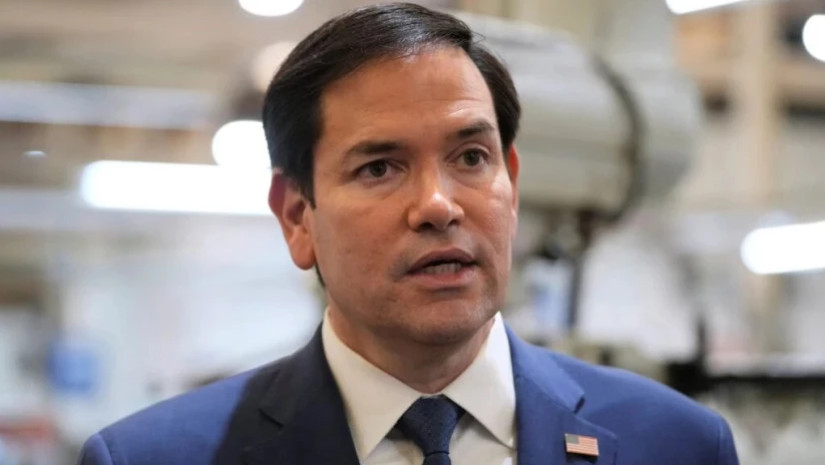US Secretary of State Marco Rubio has reassured allies that Donald Trump is not anti-NATO and that the country will remain in the alliance, but he's also asking his counterparts to make sacrifices and raise defence spending to 5%.
Secretary of State Marco Rubio has reassured NATO allies of the US' commitment to the military transatlantic alliance at his first meeting of NATO foreign affairs ministers, while recalling Donald Trump’s message that the European countries and Canada need to further increase defence spending.
“The United States President Trump's made clear he supports NATO, we're going to remain in NATO,” Rubio told reporters in Brussels, stressing that the US wants the alliance to be stronger against any potential threat.
“The only way NATO can get stronger and more viable is if our partners, the nation states that comprise this important alliance, have more capability,” he added.
The top US diplomat said he expects to leave Brussels with a clear commitment from allies to spend 5% of their GDP on defence—an increase from the current 2%, which some European countries, such as Belgium, Italy, and Spain, still fail to meet.
The transatlantic alliance is assessing its capability gaps before committing to a new defence spending target, but a final figure is not expected until the annual NATO summit in June in The Hague.
NATO Secretary General Mark Rutte stressed that European NATO members have recently committed to the largest increase in defence spending since the end of the Cold War, though he agreed with the US that more must be done.
Rubio stressed that raising defence spending to 5% cannot be done "in one year or two", but the US now demands a real way forward from its allies to build a stronger NATO capable of defending its territories.
The NATO chief also warned that the global security threats facing the Alliance are increasingly interconnected and that the Russian threat will persist for many years.
European NATO members are also expecting clear messages or a roadmap from Rubio regarding the US withdrawal of troops from Europe, where around 100,000 American soldiers are stationed. However, the US secretary of state has not yet addressed the issue, and Rutte indicated that no immediate drawdown is planned.
Some NATO members consider that the US could reduce its presence by some 20,000 to 50,000 troops.
The NATO secretary general acknowledged that the US has long sought to pivot its attention toward the Indo-Pacific but assured that it will be done “in a very coordinated manner.”




















